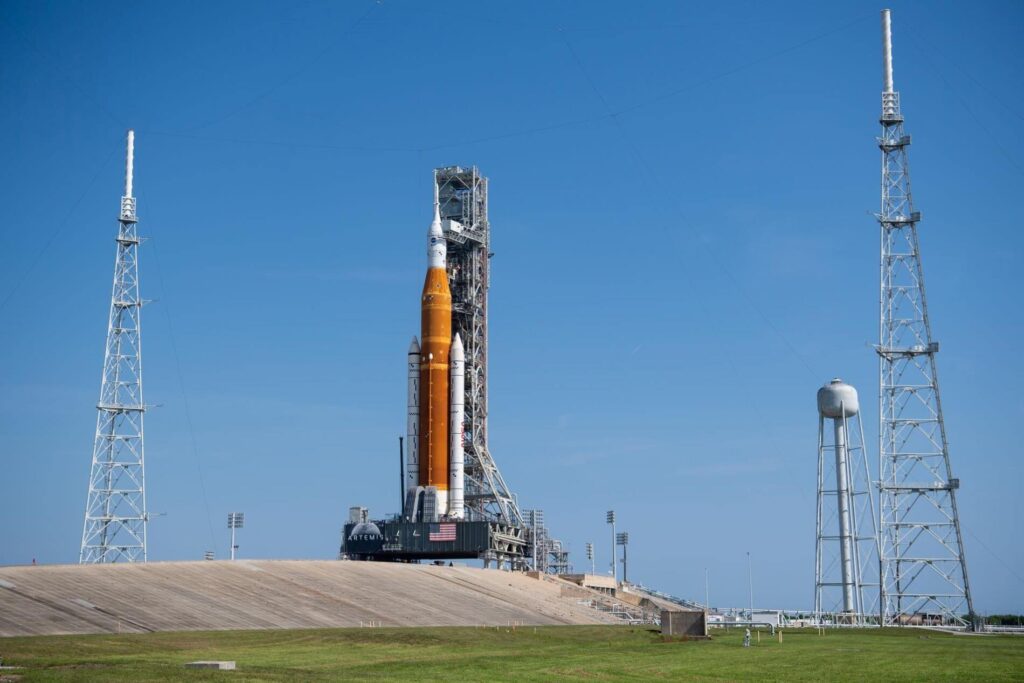NASA has once again called off the first launch of the Space Launch System (SLS), its largest-ever rocket, this time just an hour before lift-off.
According to the agency, the mission control decided to postpone the launch after multiple attempts to fix a leak in the fuel transferring system failed.
“We’ll go when it’s ready. We won’t go until then and especially now on a test flight,” NASA administrator Bill Nelson said in response to the news.
“Teams encountered a liquid hydrogen leak while loading the propellant into the core stage of the Space Launch System rocket,” NASA explained in a statement published on its website. “Multiple troubleshooting efforts to address the area of the leak by reseating a seal in the quick disconnect where liquid hydrogen is fed into the rocket did not fix the issue.”
The #Artemis I mission to the Moon has been postponed. Teams attempted to fix an issue related to a leak in the hardware transferring fuel into the rocket, but were unsuccessful. Join NASA leaders later today for a news conference. Check for updates: https://t.co/6LVDrA1toy pic.twitter.com/LgXnjCy40u
— NASA (@NASA) September 3, 2022
Artemis I is the first step in NASA’s new Moon landing program. The mission will see the rocket carry the Orion spacecraft to fly around the Moon and collect data in preparation for upcoming crewed missions.
The launch was slated to commence on August 29, 2022, but has been plagued by a series of delays. Just 40 minutes before the rocket was due to blast off, the countdown was stopped, and the mission was delayed to September 2. It was later postponed to September 3.
If successful, the upcoming launch will mark a new world record with the SLS expected to claim the title of the world’s most powerful rocket. The title is currently held by the Saturn V, which carried Apollo missions to the Moon in the 1960s and 70s. Able to generate more than 8.8 million pounds of thrust, the SLS is considerably more powerful than the SpaceX Falcon Heavy (5.1 million pounds), and slightly more powerful than the Saturn V (7.8 million pounds).
The SLS can also be designed to be upgradeable, with subsequent versions having greater power and an improved payload capacity.

